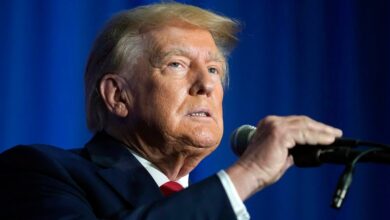Haley Warns Nominating Trump Could Be ‘Suicide for Our Country’

In a bold statement that has caught the attention of political circles, Nikki Haley, a prominent figure in the Republican Party, declared that nominating Donald Trump as the party’s candidate in the next presidential election would amount to “suicide for our country.” This remark underscores the deep divisions within the GOP regarding Trump’s influence and the direction of the party moving forward.
Haley’s comment reflects a growing concern among some segments of the Republican Party about the potential consequences of continuing to align closely with Trump’s brand of politics. Critics within the party argue that Trump’s nomination could further polarize the electorate, damage the GOP’s appeal to moderate and independent voters, and ultimately jeopardize the party’s chances in national elections.
The statement also highlights the ongoing debate about the Republican Party’s identity and values in the post-Trump era. While Trump maintains a strong base of support within the party, voices like Haley’s suggest a desire for a shift towards policies and rhetoric that could broaden the party’s appeal beyond Trump’s core supporters.
Haley, who has served as both the Governor of South Carolina and the United States Ambassador to the United Nations, is seen as a potential presidential candidate herself. Her criticism of nominating Trump signals not only her concern for the party’s national prospects but also possibly positions herself as a contrasting figure to Trump in the lead-up to the primary season.
The response to Haley’s statement from other Republicans, Trump’s supporters, and the broader political community will be crucial in shaping the discourse around the GOP’s future and its choice of candidates. As the party grapples with its direction, Haley’s outspoken stance serves as a catalyst for what promises to be a deeply consequential debate about the future of Republican leadership and strategy.
This development invites a closer examination of the dynamics within the Republican Party and the broader political landscape, as leaders and voters alike consider the implications of their choices for the party’s future and the country’s well-being.




